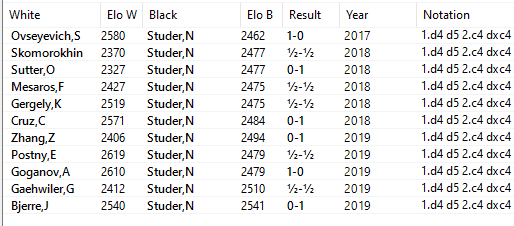If you’ve ever watched top-level chess commentary, you’ve probably heard something like:
“With Black, you need to take risks to win.”
“You can’t beat the Berlin without a novelty.”
“You have to create chances.”
At the very top—yes. That’s often true.
But if you’re not competing at 2750+ level, applying this advice backfires. And I know this from personal experience.
The Mistake I Used to Make
I’ve always been someone who likes to take the initiative. I enjoy putting pressure on my opponents, trying to play the best moves, and keeping the game dynamic. That’s part of my personality—and it’s not necessarily a flaw.
But in many cases, I overdid it.
I felt like I had to create chances. That if I wasn’t playing ambitiously every single move, I wasn’t doing enough to win.
Turns out… I was trying too hard.
With a little distance, I see this even more clearly.
I won many games in “too drawish” positions if I just kept playing good moves… and I lost many games in drawish positions when I tried to force things.
Parallels To Other Sports
It is fun to observe myself in other sports and see the same temptations.
When I play Tennis, I often want to play the ideal shot. Close to the Line, with a lot of speed, ideally some Topspin.
When I watch Curling with my father (he played in a World Championship), I always ask him why it isn’t possible to play the perfect (and nearly impossible) stone.
Even when I play poker, my tendencies are to maximize to win every single pot… which sometimes leads to very absurd plays.
The real problem is, that sometimes it does work to force things. And then it feels so damn good! But once I see the trade-offs, all the lost games, net shots, missed stones, and lost chips, I realize forcing issues isn’t the right approach.
What is even funnier is that teachers in other sports sound like me with my chess students.
“Keep it simple.”
“First, bring the ball over the net consistently, then worry about speed.”
“Let them make a mistake.”
Just Get The Ball Over
Writing this article reminds me of my epic table tennis matches against my Dad.
He played what I thought was a boring, “chicken” table tennis style.
I’d try to make the point with Topspin, slice, smash — while he was just happy getting the ball back over the net. I rarely even won a single set, let alone a full match.
One day, trying to teach me a lesson (took me another decade to understand!), he grabbed a garden shovel and played with it. Again, the same style. Just getting the ball back over the net.
I lost badly.
It might not be as sexy, but waiting for opponents unforced mistakes works in nearly all sports.
Keep Playing Good Enough Moves
My point is:
You don’t need to “create” something spectacular in every game, especially not at the club level.
What you need is:
- Consistency
- Patience
- Moves that are simply “good enough”
If you keep the game going and avoid blunders, your opponent will eventually create chances for you.
The biggest myth in amateur chess is that you need to force the issue to win. This was true for most of my games, even on my Grandmaster level. Whoever didn’t lose their composure and just kept playing good moves got a chance sooner or later.
Real Example: The “Too Drawish” Endgame
I’ve played the Queen’s Gambit Accepted with Black for years. Many of the endgames I reached were labeled as “too drawish” by others.

But I won plenty of them—against IMs, even GMs—not by going all-in, but by playing good moves. Playing this opening somehow allowed me to not think about “creating chances”, but just to think about my next move.
The ease with which I sometimes won games surprised me.
You Can Still Be You—Just With Limits
Now, don’t get me wrong. I don’t want to turn all of you into chickens that pray for a draw against any kind of opponent. Far from it.
I still like to take initiative. I still like to pressure my opponents.
But the key insight for me is: to be ambitious, I don’t need to take insane risks.
There’s a difference between playing ambitious chess… and playing desperate chess.
Ambitious chess means keeping the game going by playing sound moves and waiting for a chance to come. It also means accepting that sometimes (very rarely!), you won’t get any chances if your opponent has a good day.
Desperate chess means trying to force a win no matter what. It is the kind of heroic, mindless risk-taking that is shown in films. When it works, we feel like gods. But more often than not, it is just not reality and ends in a stupid, unnecessary loss.
Keep improving,
GM Noël Studer
PS: This article was initially sent out to my Newsletter list. If you want to get chess improvement advice for free in your inbox, join 17,000+ chess improvers by signing up for Friday Grandmaster Insights here.
Whenever you’re ready, here is how I can help you:
- Want to know How to train chess well? Check out The Simplified Chess Improvement System. This course taught 800+ students the How of Chess Training. Create your high-quality chess plan and learn how to study each part of Chess, from tactics to openings & endgames. Click here to learn more.
- Rated below 1200 Chess.com? Need to refresh your fundamentals? Check out my course, Beginner Chess Mastery. You’ll learn all the fundamentals, from strategy to how to get the most out of your pieces, tactics, and endgames. You even get a full opening repertoire for free. Click here to learn more.